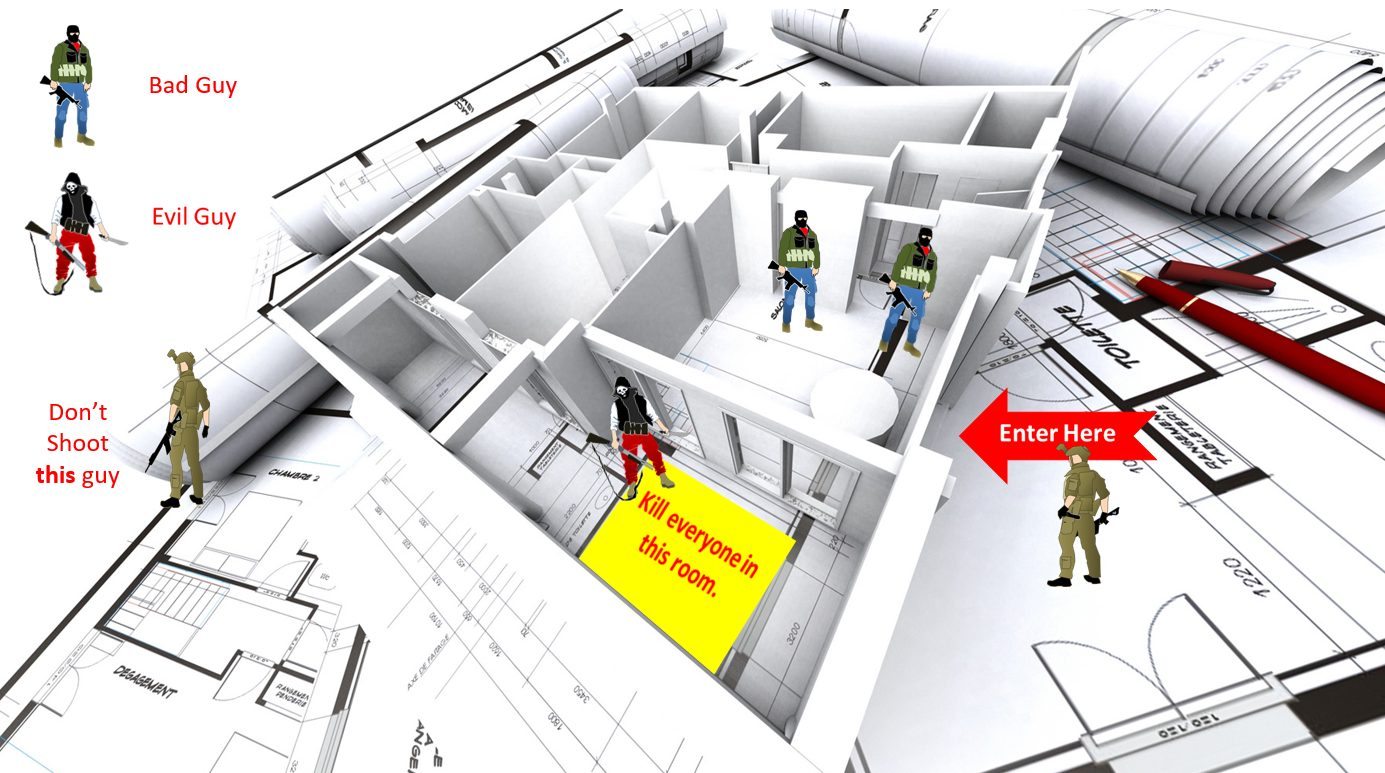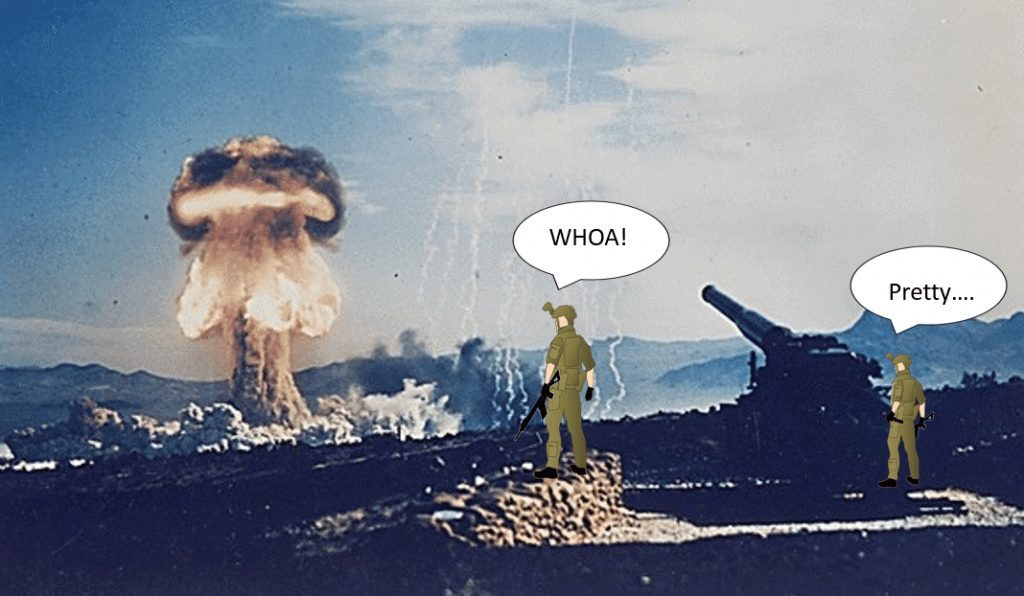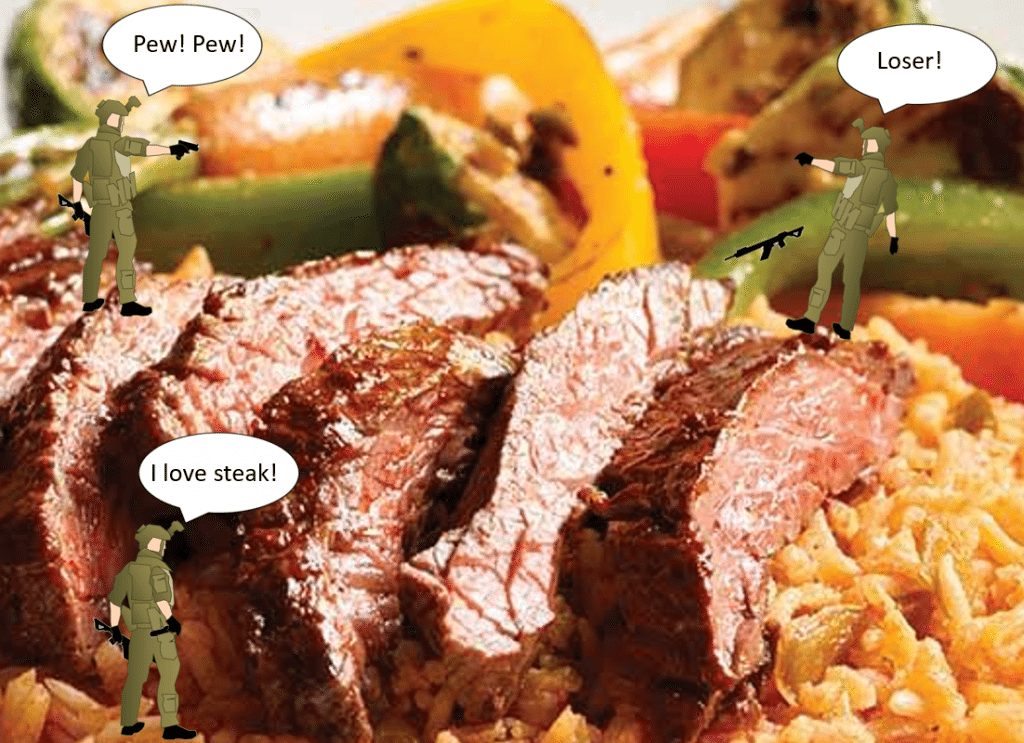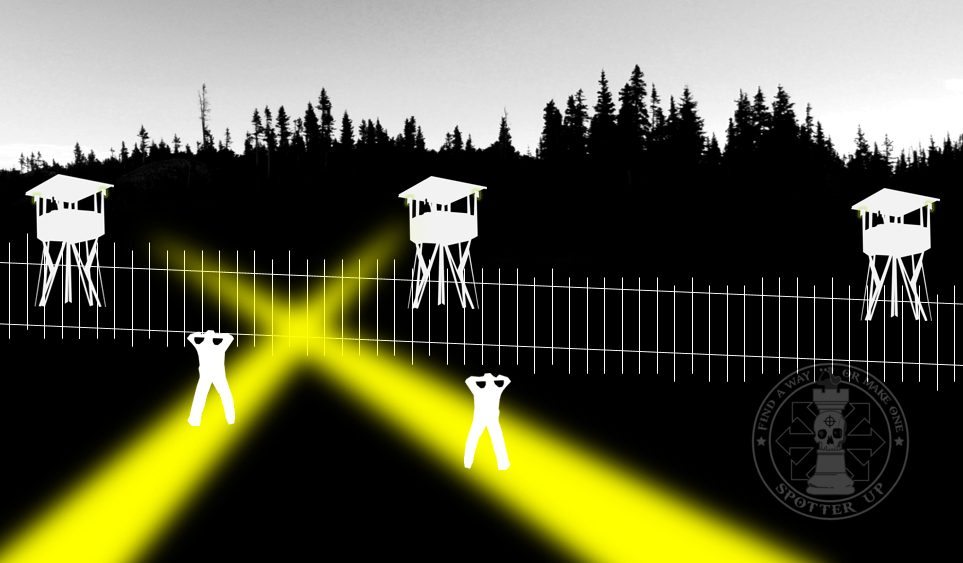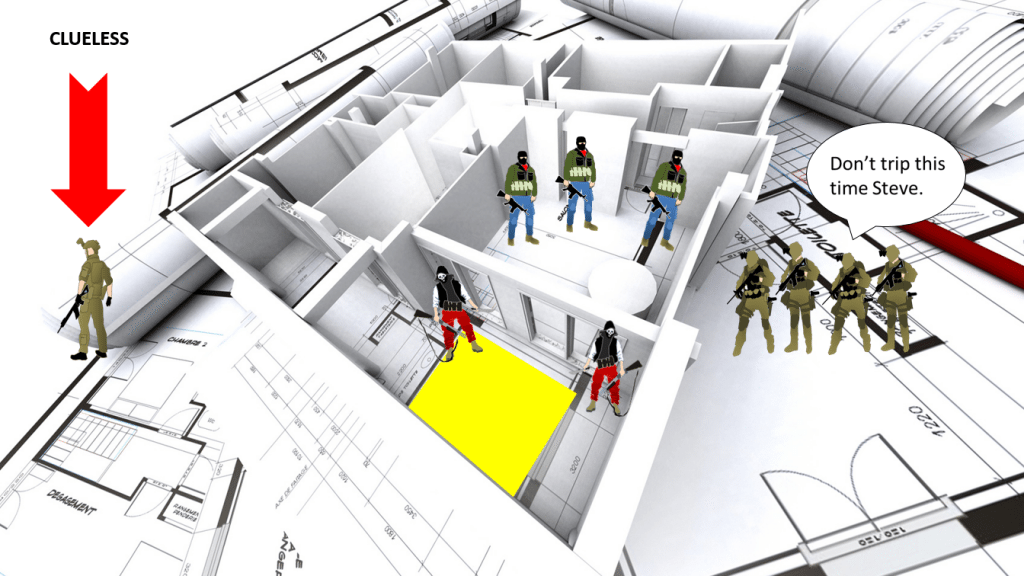Imagine if a large-scale disaster occurred. What would you do? Let’s hope you have a solution to some of the problems that come with a disaster; lack of food, lack of warmth, lack of water, someone in your party is injured, car fails to work…. If you are the head of the household, or a team leader for a group that looks to you for guidance, what are you going to do for them? Do you have a plan in place? If you do, what kind of plan is it?
It will serve you well to do pre-planning before a crisis occurs.
Plans can be made in the form of a diagram or plans can be a list of steps that you write. For example, a plan might let you figure out what items to stock up on. A plan can help ensure that you’re not top-heavy on non-essential items. It can help ensure that you have plenty of the essential stuff when a disaster comes. It doesn’t make sense to load up on toilet paper, when you more than likely need to bulk up on food or water.
A plan can help you avoid making small errors early on in your survival process. Here are some planning ideas we listed for you to think about.
In a series of future articles, we will expand on the concepts we have presented here, in order to guide those who can put a good plan to use.
Plans to evacuate a city during an attack
- Based on your situational awareness, as the risk to you, your family, and your property increases (and it crosses the line you have designated as acceptable risk) you should evacuate as soon as possible after that line has been crossed, possibly before the attack occurs.
- If you do not evacuate before the attack occurs and you decide to evacuate after the attack, then you will be conducting an Evade and Escape operation.
- Have you identified the location that you will evacuate to?
- Will you travel with more than one person?
- Does you plan allow for an extra person(s) to come along?
- Areyouin communication with friends/relatives in that location?
- What is the security situation in that area?
- Can this area support your needs?
- Then consider your “bug out” plan (below)
- Create a mission statement for the “bug out”
- Identify the specified and implied tasks
- Identify the battlefield geometry/key terrain (including the terrain objective for the bug out, i.e. the location that you will maneuver to”)
- What is your primary mode of transportation you will use for the evacuation?
- Has the security situation in the area and along the route(s) you intend to travel been degraded?
Plans to Hunker Down
- Was the precipitating event driving the situation caused by nature (hurricane, flood, tornado; fire; earthquake), nefarious actors, or a degradation of utility services (no electricity).
- Decision to stay put and either wait the situation out or delay and buy time to E&E at a time of your choosing
- Is local law enforcement operating or is it distracted by other events that have a higher response priority in the vicinity of your location than your security/safety
- Has the security situation in and around your location been degraded?
- Have utilities in the area been degraded; including electricity, water/sewage, gas?
- Are there roving groups moving through the area?
- Is there looting happening in the local area?
- Has the National Guard been called in to provide security, prevent looting?
- Is there a lawless/in extremis situation?
- What is the status of the telephone lines (landlines)
- Are cell phones operating?
- Can you communicate with anyone outside of the local area
- Do you have a full tank of gasoline, for at least one vehicle
Plans to Acquire Food
- Food you acquire should not be for today or tomorrow; you should have a minimum of 3 days (?) of food in the refrigerator and or on the shelves.
- If you are looking for food it should be for day four or beyond.
- Is food commercially available? (is food available at the grocery store or are the shelves bare)
- Are the grocery stores open or have services been suspended and commercial establishments closed?
- Are closed stores being vandalized (closed stores being burglarized by the populace) seeking food on the shelves?
- Is there (food) contamination issue?
- Is there enough food to go-around, or is the shortage of food an issue for the population?
- What is the situation regarding water? Is potable water readily available or should you consider the water contaminated?
- Is the populace “desperately” seeking food and water?
- Is the populace out in the neighborhoods looking for food?
- Has the local, state, federal government acknowledged a food shortage and may any provision for added security or food delivery into the local area?
- Do you have any commodity items that you think you use to exchange/trade for food?
- Do you think you will have to “defend” the stores of food you have from perpetrators?
How to make a Bug Out plan
- Create a mission statement for the “bug out”
- Identify the specified and implied tasks
- Identify the battlefield geometry/key terrain (including the terrain objective for the bug out, i.e. the location that you will maneuver to”)
- Conduct an Intelligence Preparation of the Battlefield (IPB) analysis: IPB integrates information on the enemy, weather and terrain, and provides the basis for situation development, target value analysis, collection and reconnaissance and surveillance planning and battlefield decision-making.
- Develop Go/No Go Criteria for the Bug Out
- Identify Risks, Assumptions,andEEIs,RFIs,andEEFIs.
- Essential Elements of Information
- Request for Information
- Essential Elements of Friendly Information
- Identify Courses of Action
- Identify support requirements
- Acquire resources
P.O.W. Survival Plan
- Surveillance awareness (counter-surveillance techniques and technologies)
- Interrogation awareness
- Know your rights and how to exercise them properly; don’t make matters (“with the authorities“) worse or create predicaments for yourself
- Develop and Continuously enhance a survivalist mentality and attitude
- Develop coping mechanisms
One year Urban Survival Guide
- Where do you begin?: Attitude is Everything
- Assess your Level of Survivability
- Survival Skills
- Urban
- Rural
- Survival Information / Knowledge
- General topics
- Specific topics
- Lesson Learned
- Survival Tactics, Techniques, Gear & Equipment, Clothing, Weapons and Ammo
- Shelter
- Food & Water
- Medical
- Fire, Cooking, Heat
- Weapons
- Survival Education
- Books & Online research
- Clinics
- Survival Training
- Adventure Training Programs
- Firearms
- Hunting
- Fishing
- Survival & Subsistence Tradecraft
- Survival Network
- Collaboration with Like-minded People
- Join Virtual Survivalist Communities
- Threats to Survival
- Danger Areas
Alec Yandy*
Alec Yandy was born in the 1950’s and raised by parents who were charter members of “the greatest generation.” His father served in Europe during WWII as an Infantry Platoon Leader and retired from the Army reserve in the 1960’s. He was raised with a sense of duty, honor, and country, and faith in God. He attended elementary school in the 1960’s and high school and college during the 1970’s. He attended and graduated from The Military College of South Carolina, in Charleston. There he learned a great deal about discipline, leadership, himself, and other people. After graduating he went into the Marine Corps and retired 20 years later. He spent 9 plus years overseas serving in a variety of combat engineer units and intelligence staff assignments, afloat and ashore assigned to conventional and special operations forces. Since retiring from the Marine Corps he has been working as a DoD contractor supporting the Combat Support Agencies, in the greater Washington, D.C. metropolitan area. He reads and studies history; is a firearms and survival enthusiast; works out and spends as much time as possible at the range, in the woods, or on the beach.
Alec Yandy subscribes to the Spotter Up way of life. “I will either find a way or I will make one”.

